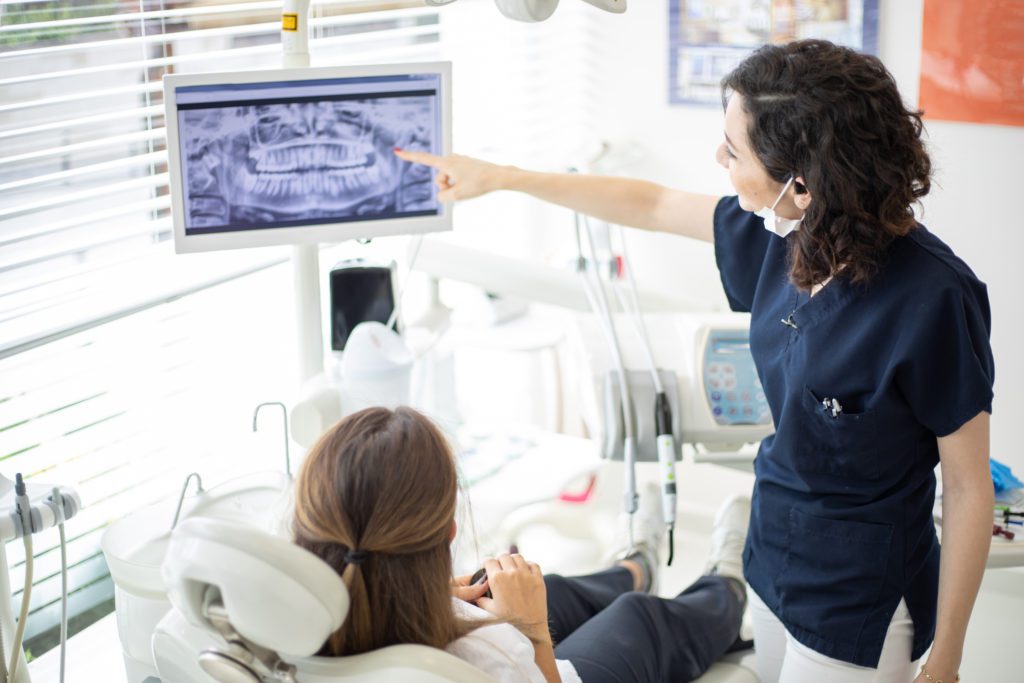Temporomandibular joint disorders (TMD) are often caused by stress or an injury to the joints that aid in biting and chewing. Dysfunction in these joints can lead to often painful symptoms, including jaw tension and toothaches. At Aesthetic Dentistry Centre, Dr. Mark Sowell helps patients with TMD. He takes a comprehensive approach to diagnose patients with TMJ disorders. Dr. Sowell collaborates with his patients individually so he can better understand their oral health goals and current dental needs. He may also take the lifestyle of his patients into account as well as emerging symptoms to diagnose and treat his patients.

Common Symptoms of TMJ
There are a variety of signs of temporomandibular joint disorders to be aware of:
- Teeth clenching and grinding (bruxism)
- Jaw and tooth pain
- Signs of tooth wear
- Earaches and pain
- Jaw locking and clicking
- Chronic migraines and headaches
- Difficulty biting and chewing
Please contact Dr. Sowell if you have noticed changes in your bite or sudden discomfort or pain. It can sometimes be difficult to diagnose TMJ disorders, as symptoms may seem subtle at first. However, tooth wear and pain or tension in the jaw are often tell-tale symptoms of TMD. Dr. Sowell will help you find the exact source of your symptoms and recommend the right TMJ treatment to meet your needs.
How to Treat TMJ Disorders
Dr. Sowell can provide NTI-TSS devices, also known as nightguards, to patients with bruxism. Marked by teeth clenching and grinding, bruxism is a painful TMJ symptom that can wear down the chewing surfaces of the teeth over time. Wearing an acrylic, custom-made nightguard during sleep can prevent tooth wear. The NTI-TSS device also helps alleviate tension in the jaw, allowing the jaw muscles and joints to relax. Dr. Sowell will recommend a professional, custom-made nightguard over store-bought options. This is because store-bought mouthguards are typically made of rubbery plastic. During sleep, patients with bruxism will chew on their nightguards, which does not relax the jaw muscles or joints. Professional nightguards that are made of a harder material help prevent continual chewing during sleep.
Physical therapy and diet changes may be used in conjunction with nightguards. Early on in your TMJ treatment, you may need to stick to a soft diet. Avoiding hard, chewy, and crunchy foods help the jaw rest. During physical therapy, patients learn exercises to relax their jaw, neck, arm, and back muscles. Posture is an important factor to consider, as tension in the face, neck, and back can exacerbate symptoms. Crooked and misaligned teeth can contribute to TMJ disorders. For patients who do not clench or grind their teeth, but have other TMD symptoms, we may recommend orthodontic treatment.
Request a Dental Consultation
Are you a new patient of our practice? Call our dental office today at (972) 382-6855 for an appointment. If you are a current patient, call (972) 931-0090. You may also schedule a dental appointment with Dr. Sowell on our website. Please let Dr. Sowell know if you have any further questions or concerns about TMJ treatment.
